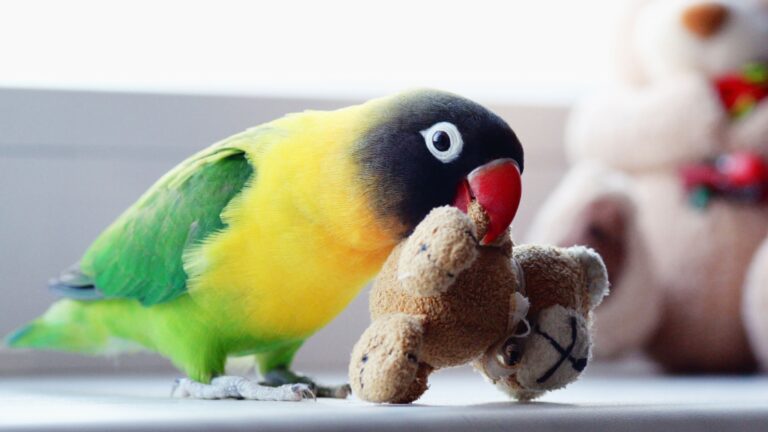11 Bulldog Problems Every Owner Can Relate To

Bulldogs are one of the most beloved dog breeds, known for their charming appearance and gentle nature. However, owning a bulldog comes with its own set of challenges.
Let’s learn the most common complaints that bulldog owners face, offering insights and tips to help manage these issues effectively.
1. Eye Issues
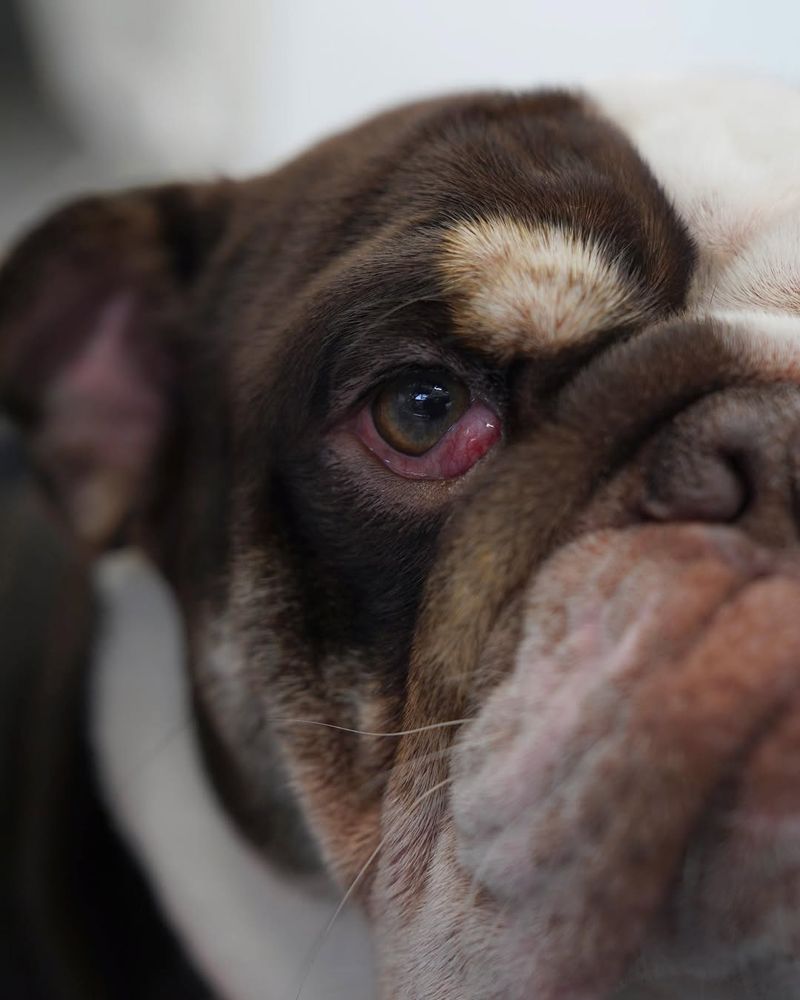
Eye Issues are common in Bulldogs, as their prominent eyes are prone to dryness, irritation, and infections. Regular eye care and checking for signs of discomfort can help manage these issues.
2. Breathing Problems
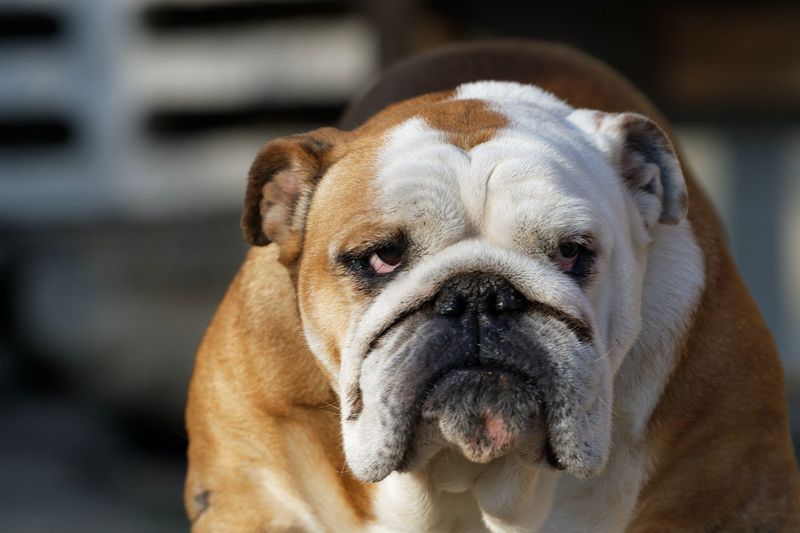
Their short snouts can cause them to struggle for air, especially during physical activities. This can be distressing for both the dog and the owner.
Respiratory issues in bulldogs are mainly due to their brachycephalic nature. Owners may notice their pets snoring loudly or panting excessively even when not exerting themselves. During hot weather, these breathing difficulties can become more pronounced, necessitating extra care.
3. Obesity

Obesity is another challenge for Bulldogs, as their laid-back nature and tendency to gain weight easily can lead to health problems.
Keeping a balanced diet and ensuring proper exercise is key to maintaining a healthy weight.
4. Skin Infections

Moisture and dirt can accumulate in these folds, leading to bacterial growth and skin irritation. Owners often find themselves dealing with recurring skin infections.
Regular cleaning and drying of your bulldog’s skin folds can significantly reduce the risk of infections. Products designed specifically for bulldog skin care are available and can be quite effective. It’s important to be gentle while cleaning to avoid further irritation.
5. Joint Pain

Joint pain is a common issue among older bulldogs due to their stocky build. The extra weight puts stress on their joints, leading to pain and mobility issues. This can affect their quality of life and limit their ability to enjoy walks and playtime.
Owners should monitor their bulldog’s weight closely, ensuring they maintain a healthy diet. Supplements, such as glucosamine, can support joint health and improve mobility. Regular, moderate exercise can help keep their joints flexible without overstraining them.
6. Heat Intolerance

Bulldogs often struggle with heat intolerance due to their short snouts and thick bodies. They can overheat quickly, especially in warm weather, making it essential for owners to manage their environment carefully.
Providing a cool and shaded area for your bulldog is crucial during hot days. Access to fresh water at all times is necessary to prevent dehydration. Some owners find that cooling mats or vests can be very effective in helping their dogs stay comfortable.
7. Drooling
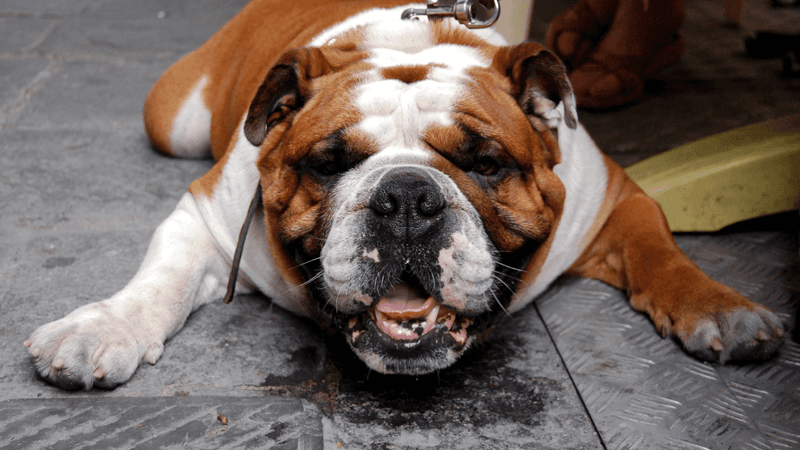
Drooling is a natural and common trait in bulldogs, often amusing yet sometimes problematic for owners. Their loose jowls can produce excessive slobber, especially when excited or during meals. This can require frequent cleaning to keep the home tidy.
While drooling is normal, significant changes in drooling patterns should be monitored. It could indicate dental issues or other health concerns. Regular dental check-ups are beneficial in maintaining oral health and controlling drool production.
8. Stubbornness

Bulldogs are known for their stubborn streak, which can be both endearing and exasperating. This strong-willed nature means they may resist commands or refuse to move during walks, testing the patience of their owners.
Consistent training and positive reinforcement can help manage bulldog stubbornness. Patience and persistence are key, as they respond well to encouragement rather than force. Treats and praise can be effective motivators to engage their cooperation.
9. Snoring

Snoring in bulldogs is a common occurrence due to their unique facial structure. Their flat noses make breathing during sleep less efficient, leading to loud and sometimes amusing snores that can be heard throughout the house.
While snoring is usually harmless, particularly loud or sudden changes in snoring patterns may need attention. It could indicate respiratory issues that require a vet’s evaluation. Ensuring your bulldog sleeps in a comfortable position can help minimize snoring.
10. Gassiness
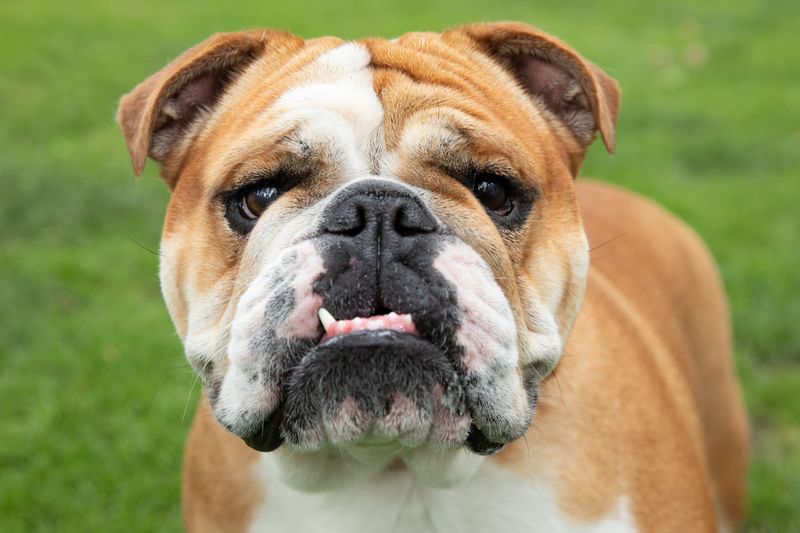
Their sensitive digestive systems often lead to frequent flatulence, which can be quite noticeable and sometimes embarrassing.
To manage gassiness, monitoring your bulldog’s diet is essential. High-quality, easily digestible food can reduce gas production. Avoiding table scraps and sudden changes in diet can also help keep their digestion steady and minimize unpleasant odors.
11. Separation Anxiety

These affectionate dogs form strong bonds with their families and can become anxious when left alone, leading to destructive behavior or excessive barking.
Gradual training can help ease separation anxiety. Start by leaving your bulldog alone for short periods, gradually extending the time as they become more comfortable. Providing toys and distractions can keep them engaged while you’re away.


